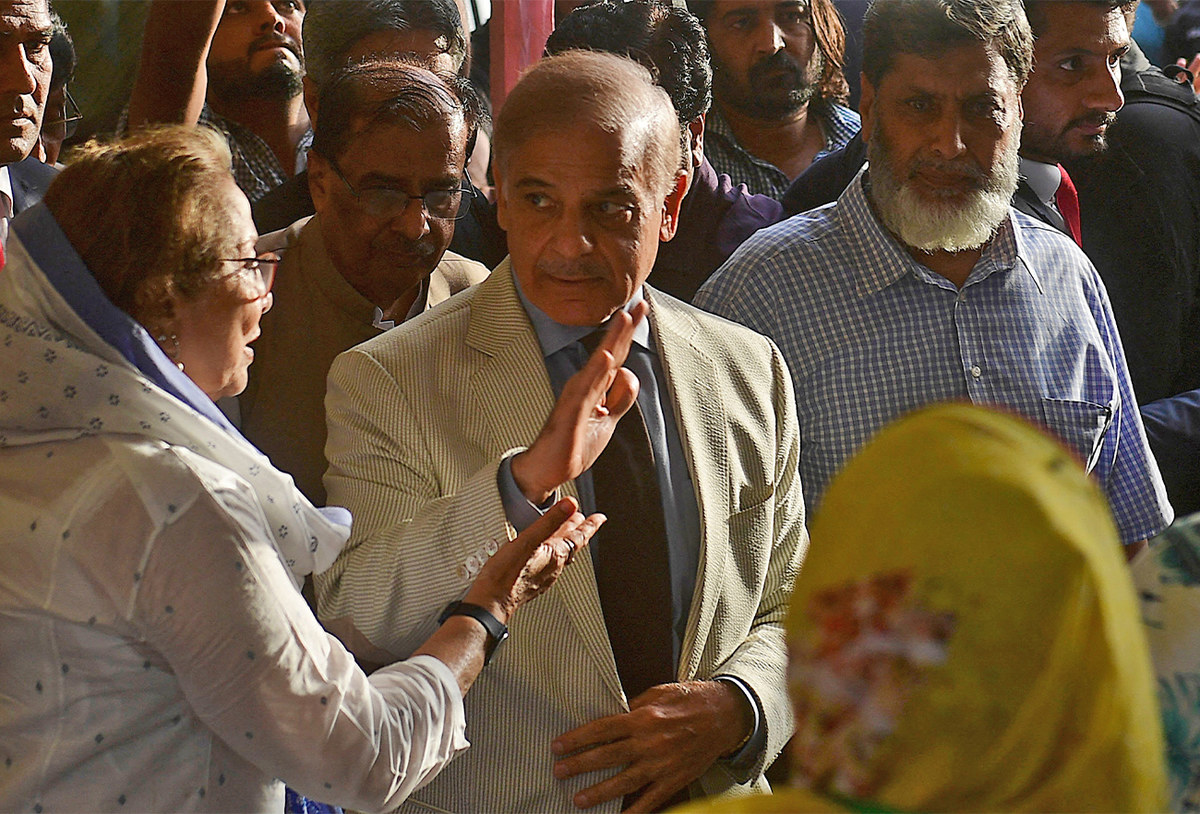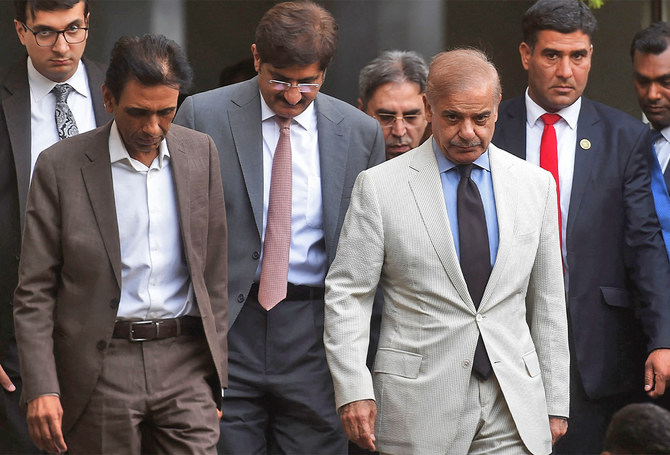KARACHI: Pakistan’s newly elected Prime Minister Shehbaz Sharif discussed various developmental projects with the top provincial administration officials of Sindh on Wednesday while mentioning the possibility of reviving the Karachi Circular Railway (KCR) by bringing it under the framework of the China-Pakistan Economic Corridor.
Sharif promised to resolve Karachi’s outstanding issues during a daylong visit to the city where he was received by Chief Minister Murad Ali Shah.
The new prime minister visited the mausoleum of Pakistan’s founding father Muhammad Ali Jinnah to pay his tribute and “reiterate observance of the golden principles of the Founder of the Nation aimed at progress and prosperity of the country,” a statement from his office said.
He also held a meeting with the leaders of his administration’s important ally, the Muttahida Qaumi Movement-Pakistan (MQM-P), at their headquarters in the city.
“We should strive to make the KCR, the public transport system, as part of the CPEC [China-Pakistan Economic Corridor],” he told the participants of his meeting with Shah, adding the authorities in Beijing had initially hinted at making it a mandatory part of the multibillion-dollar project.
Sharif added the “circumstances have changed,” and Pakistan was once again in a position to reach out to the Chinese government over the issue.
The prime minister also recognized the chief minister’s efforts to resolve the transportation issues of Karachi, saying the provincial government was doing its utmost to help its residents and the federal authorities would extend all possible support to it.
Commissioned in 1964, the KCR was originally designed to help the Pakistan Railways employees by facilitating their movement between their workplaces and residences in the city’s eastern neighborhoods.
The service remained popular until 1984 when the number of trains reduced, though it was the lack of maintenance and repair, along with a gap between expenditure and revenue, which led to its closure in 1999.
Pakistan’s former prime minister Imran Khan, who is scheduled to address a large public rally in Karachi on Sunday, did the ground breaking ceremony for the project’s revival last September, nearly a year after former railways minister Sheikh Rasheed Ahmed partially reactivated it but could not make it fully functional.
Sharif also said he wanted to import thousands of buses by facilitating investors to fulfil the transportation needs of Karachi.
He discussed the issue of clean drinking water for the city in detail and agreed to upgrade its capacity by 2024.
“If we resolve the water issue, we will obey the commandment of God,” he said.
Later, Sharif visited the MQM-P headquarters and held a meeting with its leadership, though he left for Islamabad without interacting with the media.

Pakistan's Prime Minister Shehbaz Sharif waves as he arrives to meet leaders of the Muttahida Qaumi Movement (MQM-P) and collation partners of the newly formed government during his visit in Karachi on April 13, 2022. (AFP)
Speaking to journalists, Khwaja Izhar-ul-Hasan, a senior MQM-P leader, said his party was not interested in federal ministries or the governor’s position in Sindh.
He added the MQM-P only desired to facilitate the federal and provincial authorities with the implementation of the agreements signed with them ahead of ex-PM Khan’s ouster.
Later, an official handout circulated by the party said the prime minister had agreed to excute the accord with the MQM-P as soon as possible.




















